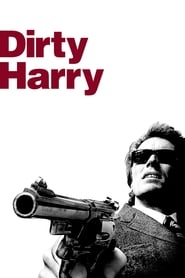With Harry Callahan, Eastwood was brought up to date, and the only true western heir to John Wayne was turned into the quintessential cop of the seventies, the decade when cops replaced cowboys as the action film heroes of choice.
— Quentin Tarantino (Cinema Speculation)
Just as Buddy Holly’s hit song, ‘That’ll be the day’, was derived from Edwards’s tag line, so the name Dirty Harry was taken from a strontium 90-filled atom bomb, one of 11 that the Atomic Energy Commission had dropped over Yucca Flats, Nevada in 1953. The next year John Wayne had starred as Genghis Khan in The Conquerors, filmed on location downwind from Yucca Flats in Utah’s Escalante Valley. The battle and chase scenes used Snow Canyon, where swirling winds had filled the dunes with radioactive dust. As Geiger counters ticked wildly, film crews carted that dust back to Culver City to give the interior scenes their on-location texture. Of the 220 people on location in Escalante, 91 developed cancer. John Wayne was one of them. […] Produced and destroyed by the military industrial complex and the mythic history that supported it, John Wayne died fighting its battles.
— Michael Rogin (London Review of Books)
There’s a clear tradition of directors claiming that their films don’t reflect their politics while allowing them to become vessels for regressive messaging. [S]iegel, a self-identified liberal, expressed dismay at Dirty Harry being read politically and said that he and Eastwood never had a political discussion during the production. Eastwood, who would go on to fund a rightwing militia which crossed into Laos in the ’80s, claimed that people seeing any sort of political statement in Dirty Harry were the same sort of people who saw politics in their cereal. This, they said, was just entertainment.
— Andrew Fedorov (LA Review of Books)
A kind of hardhat The Fountainhead.

